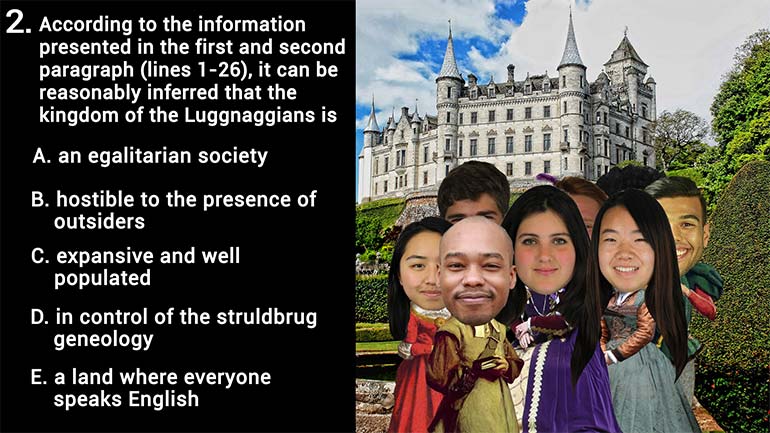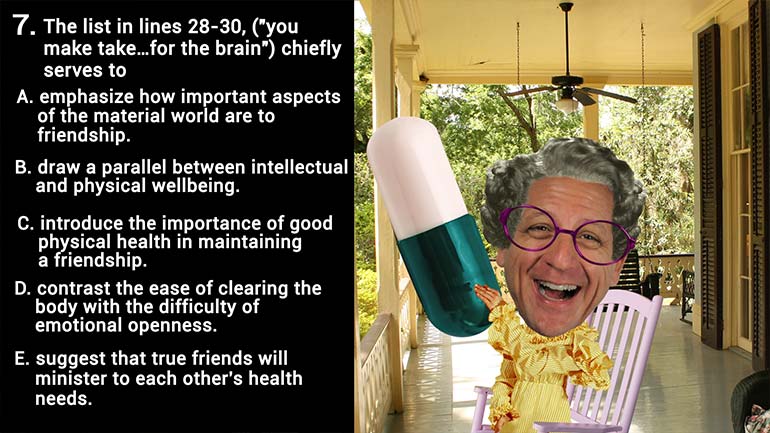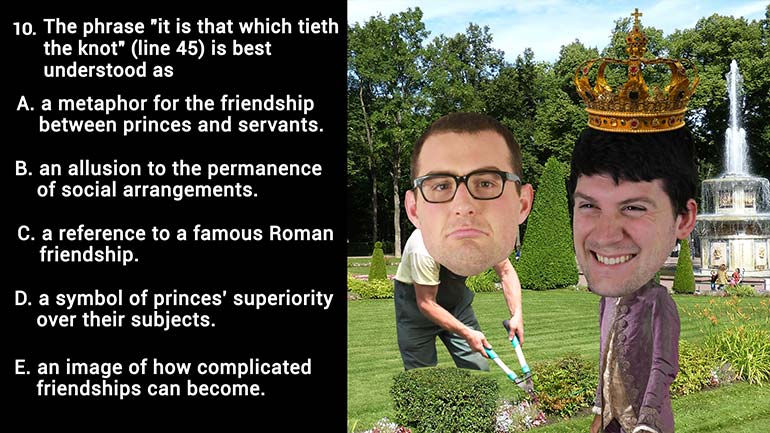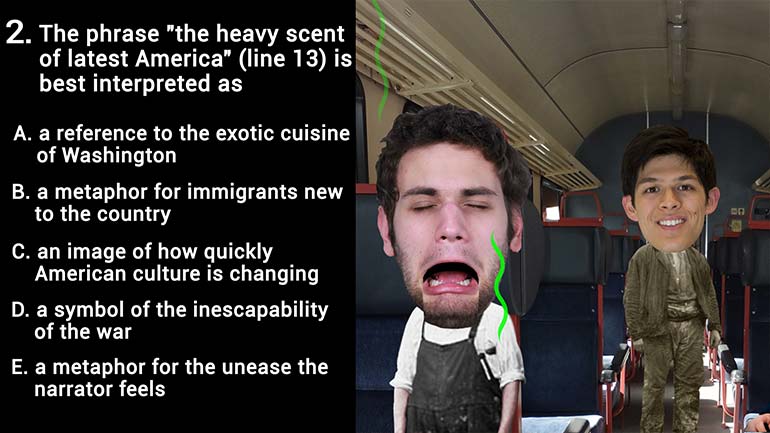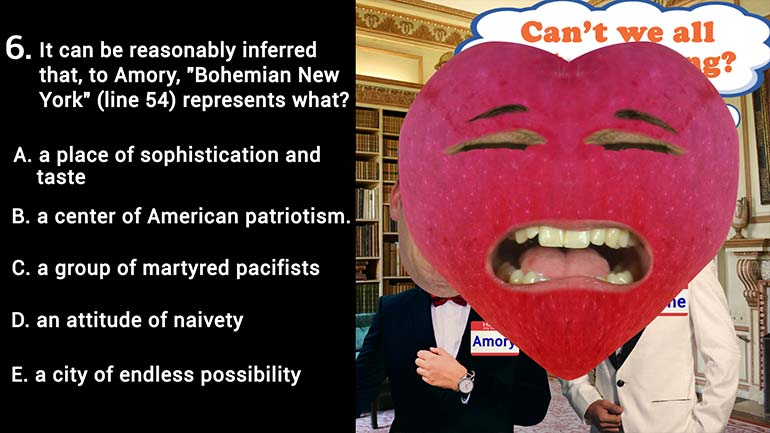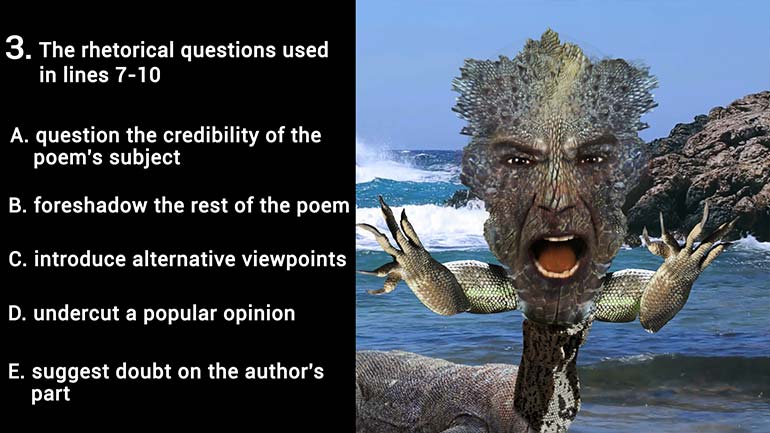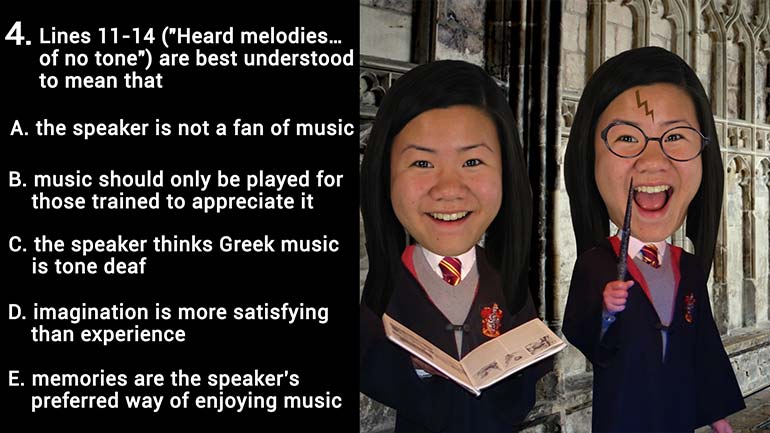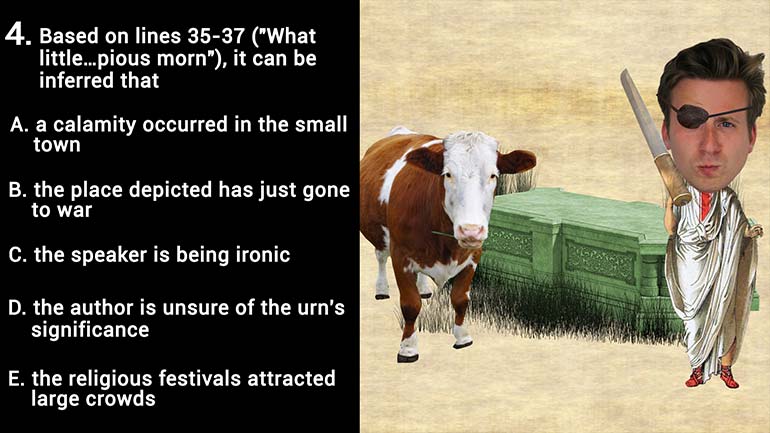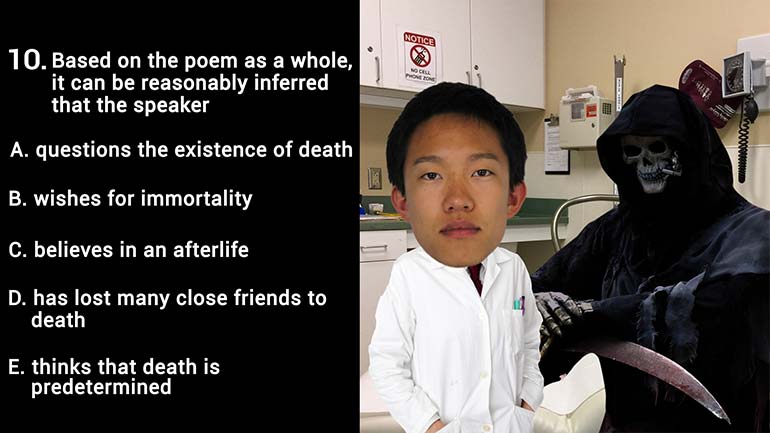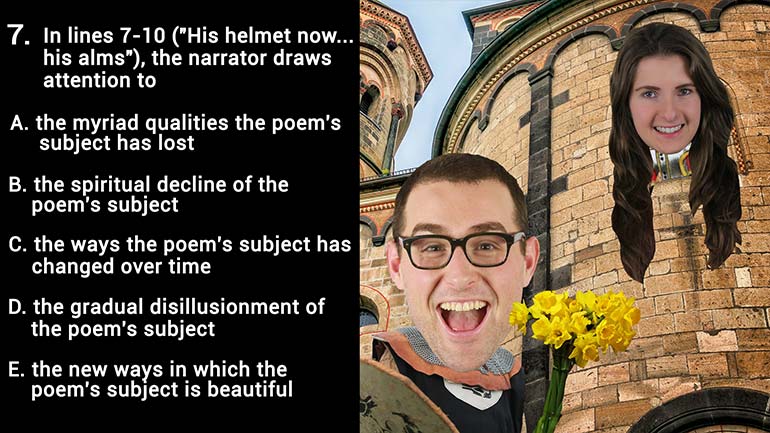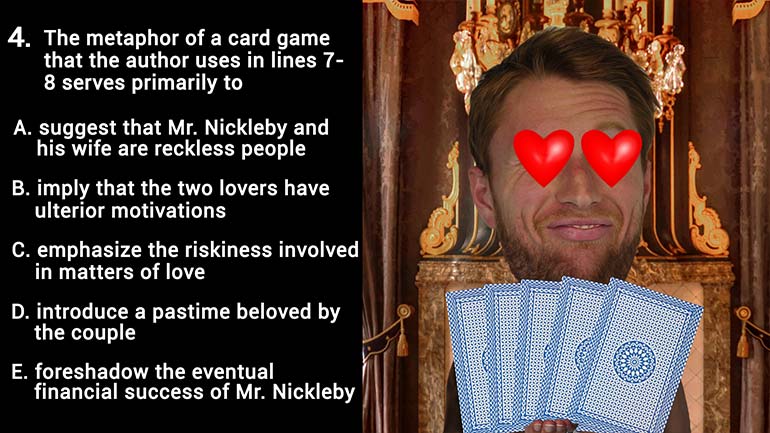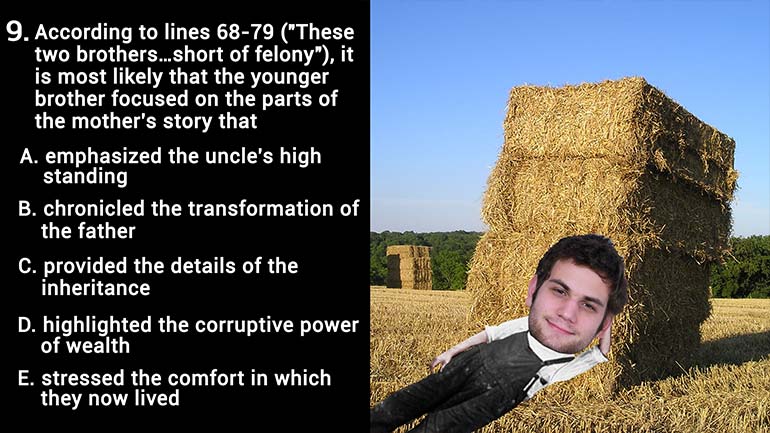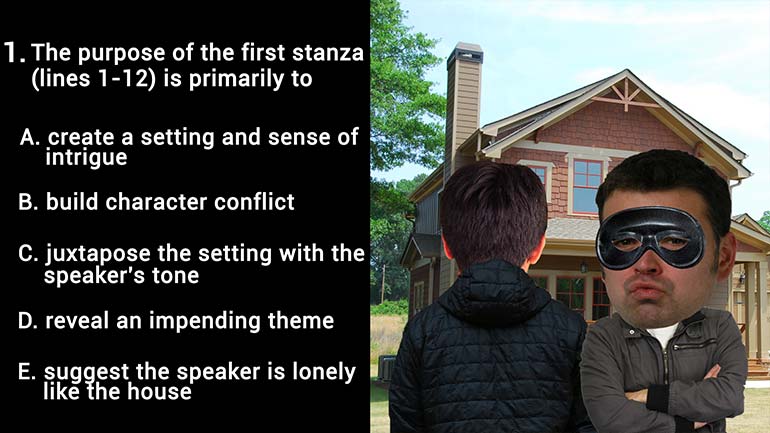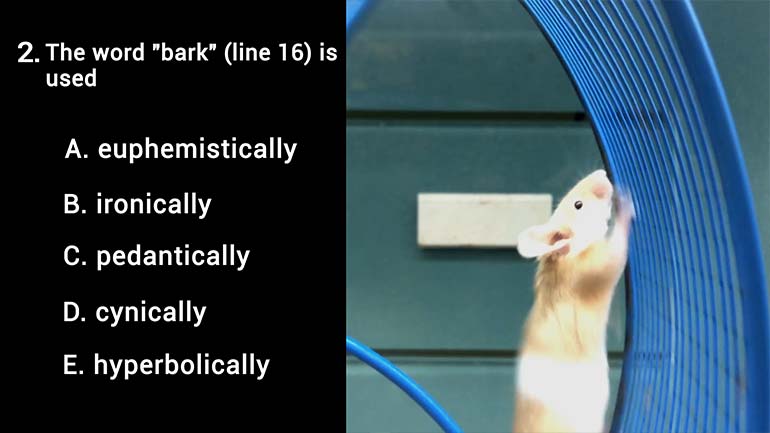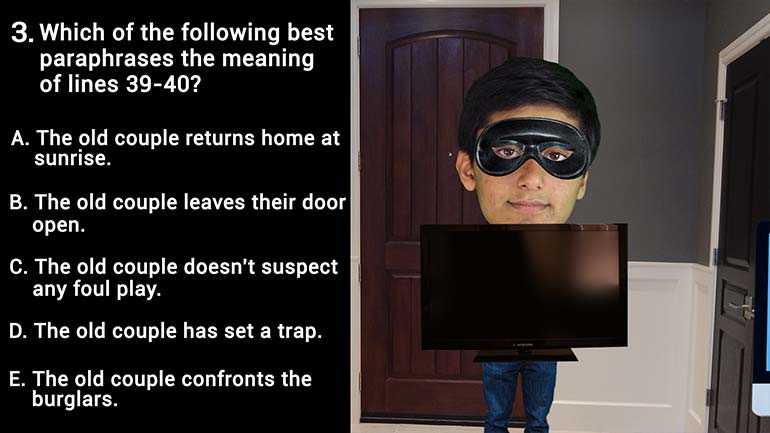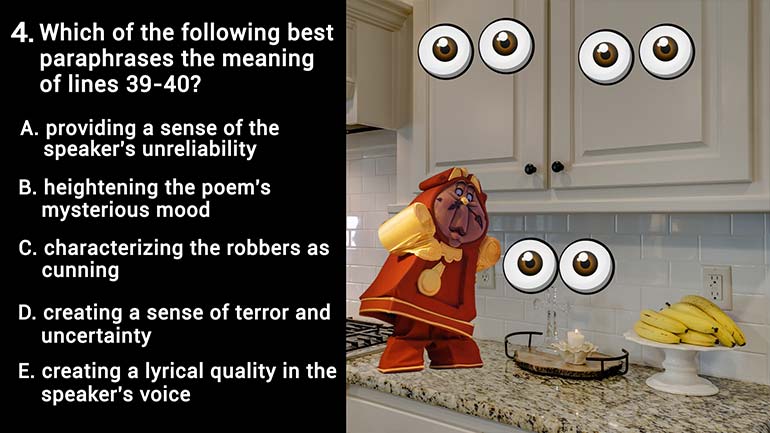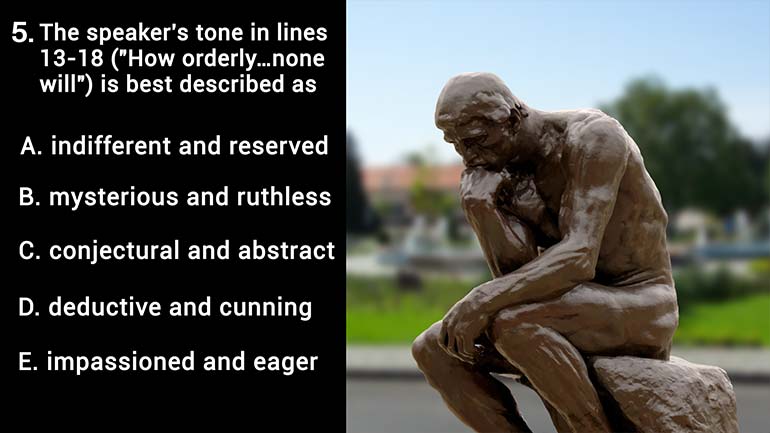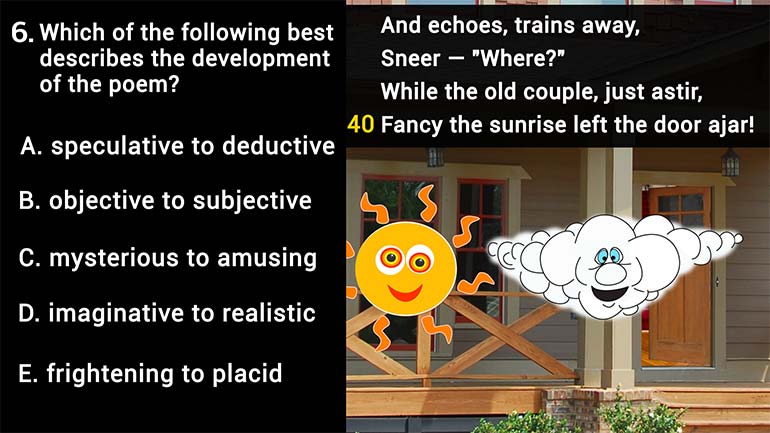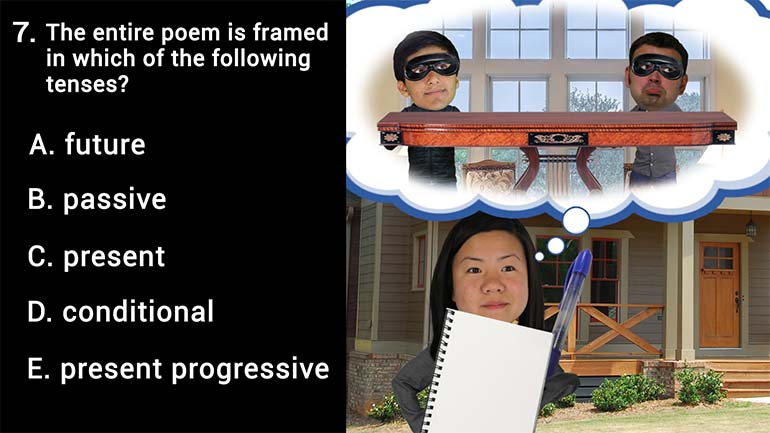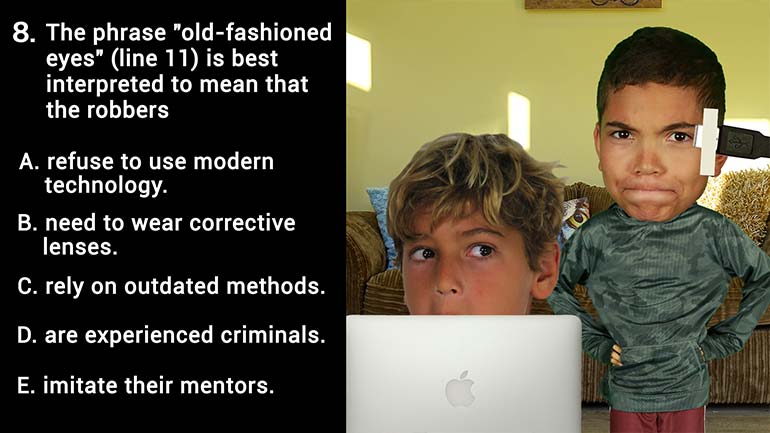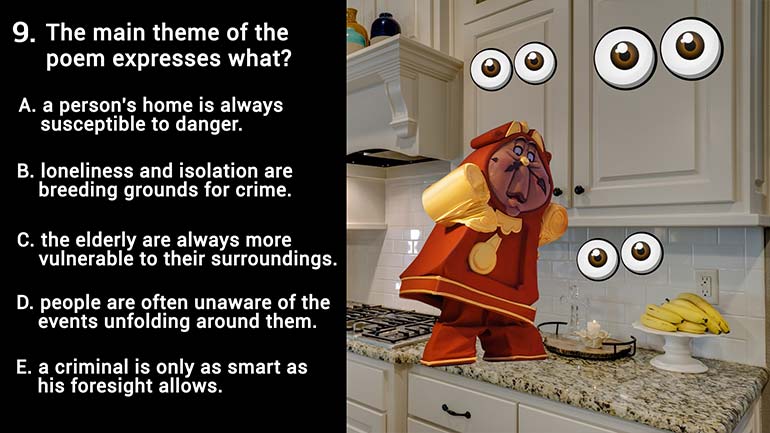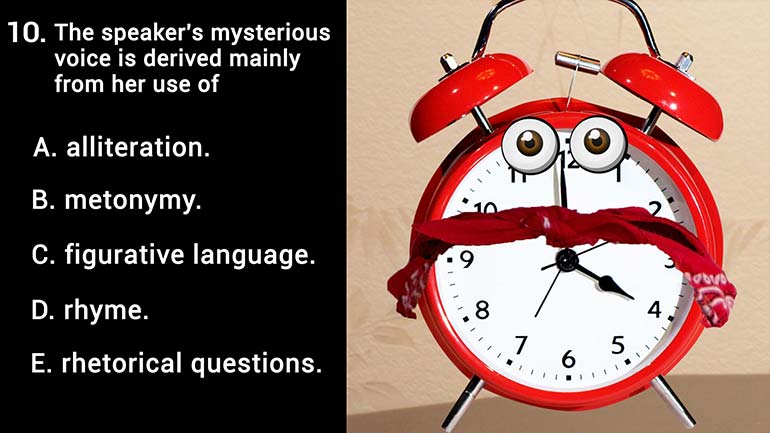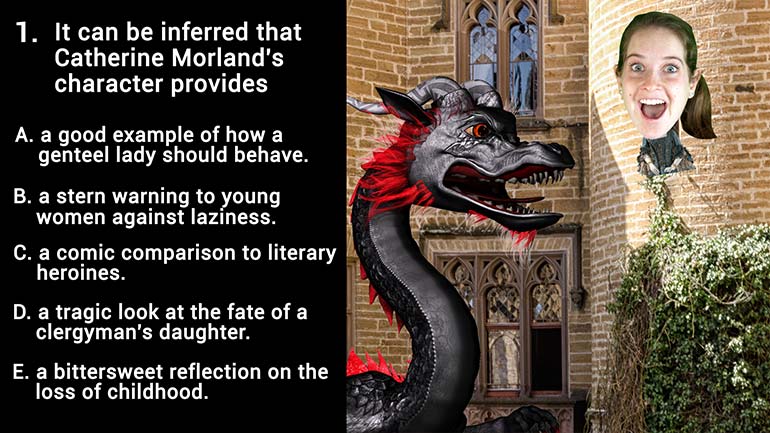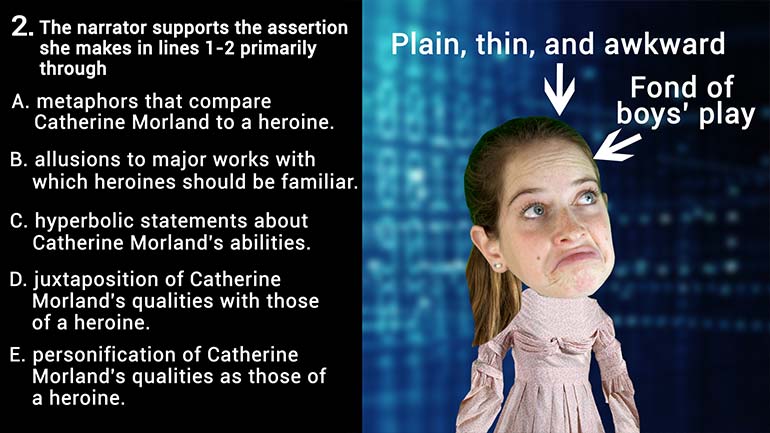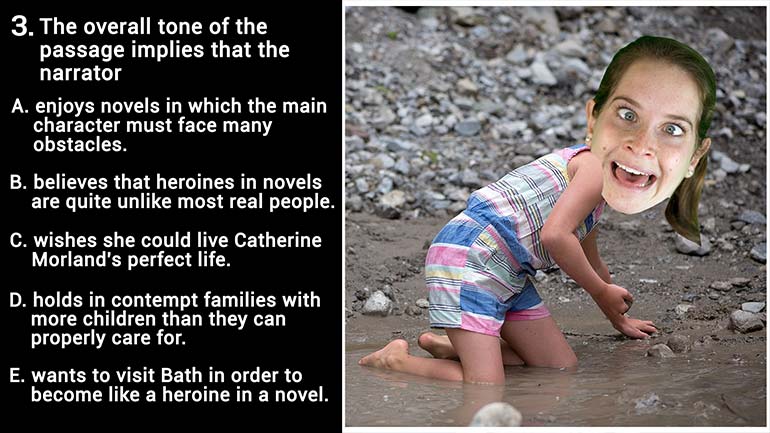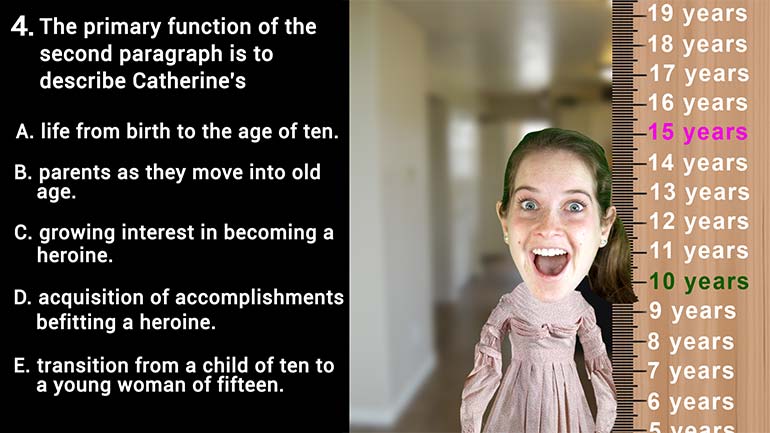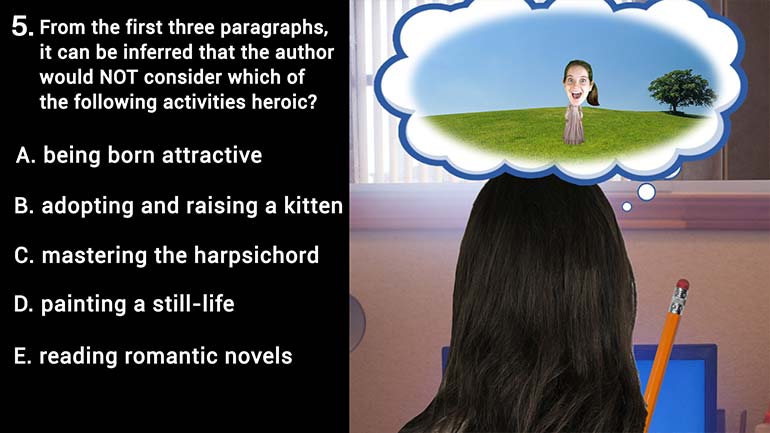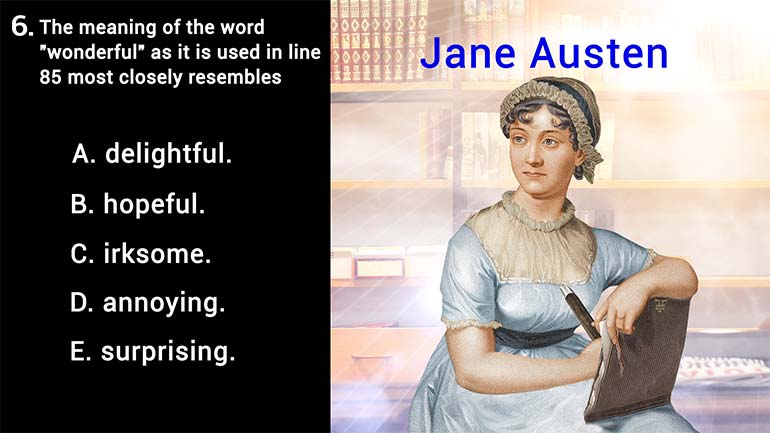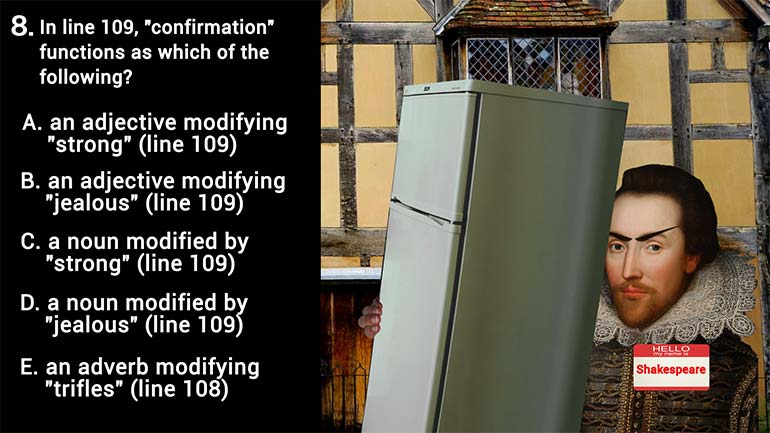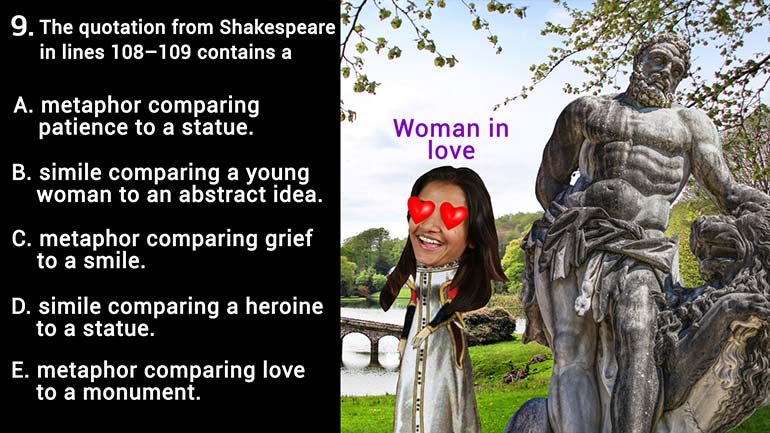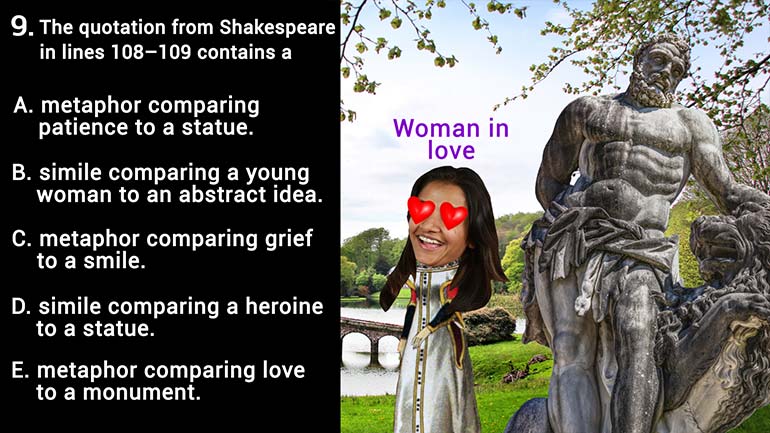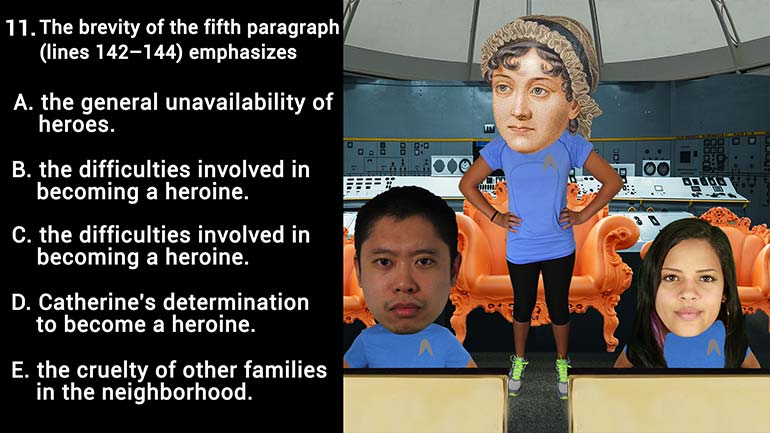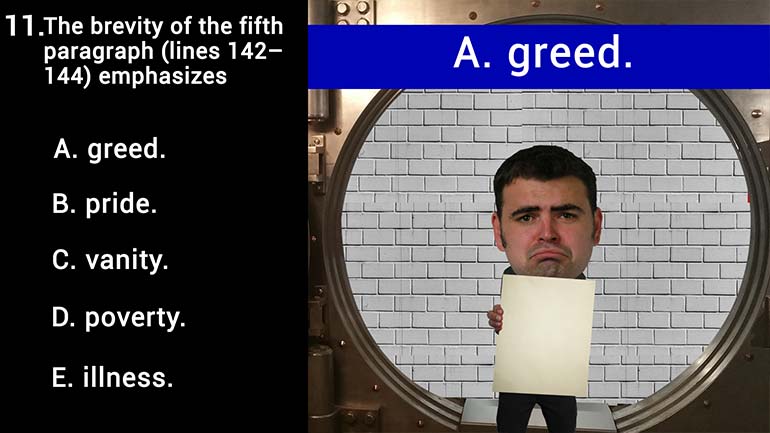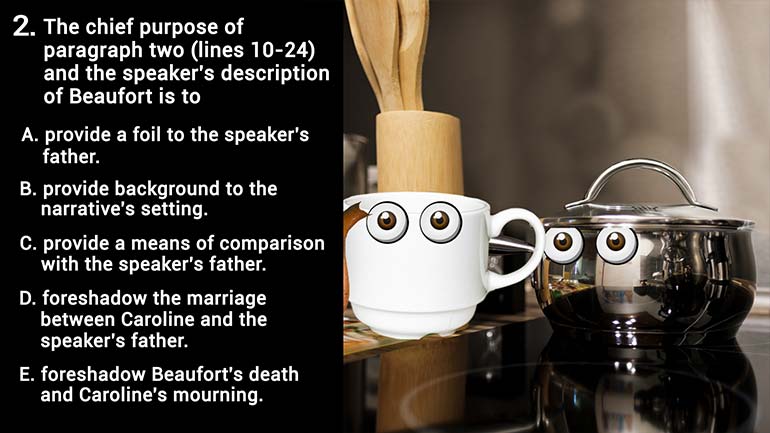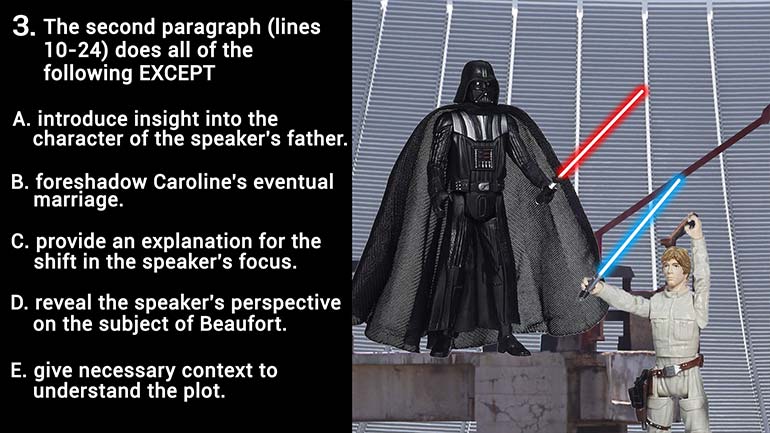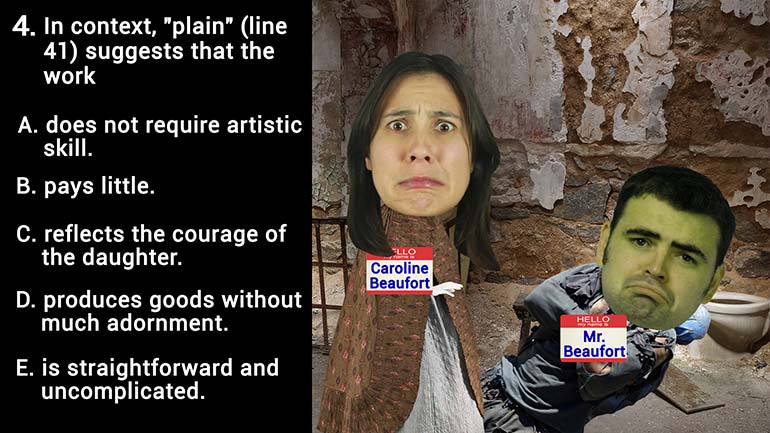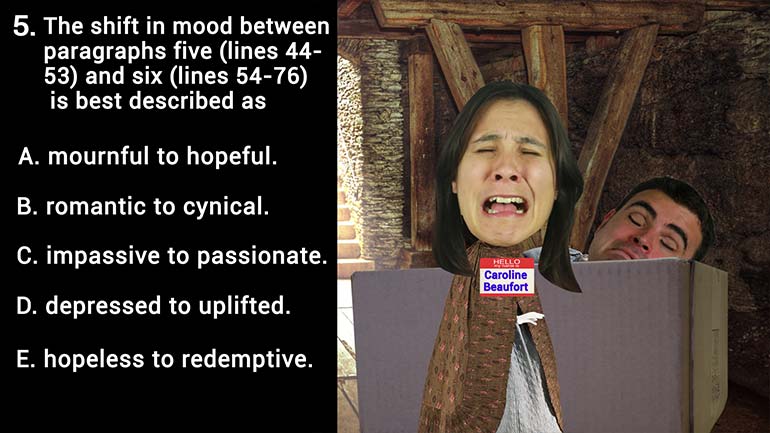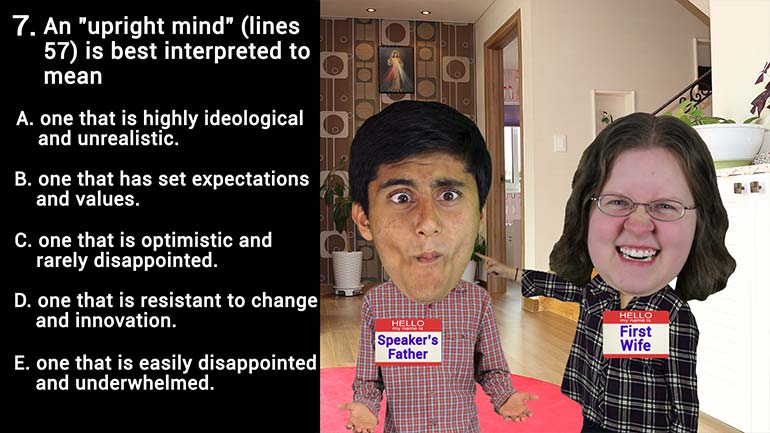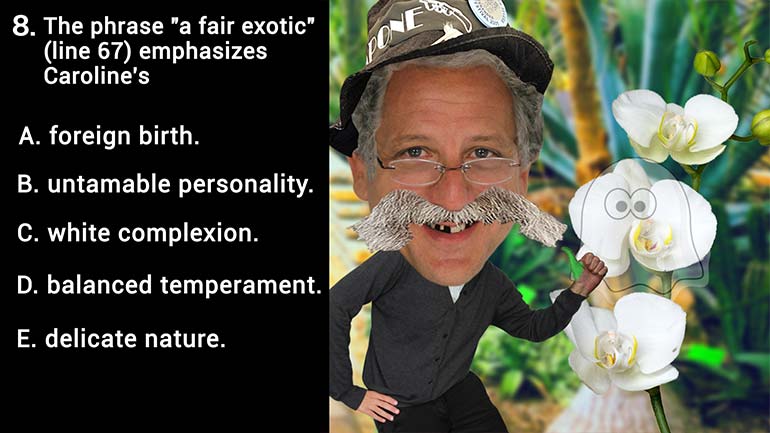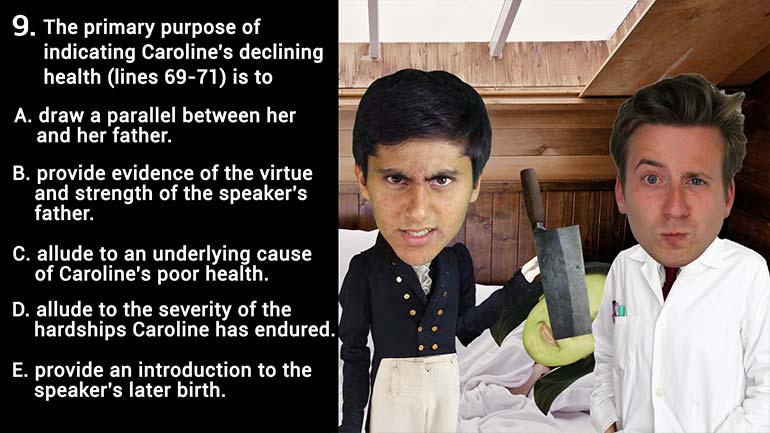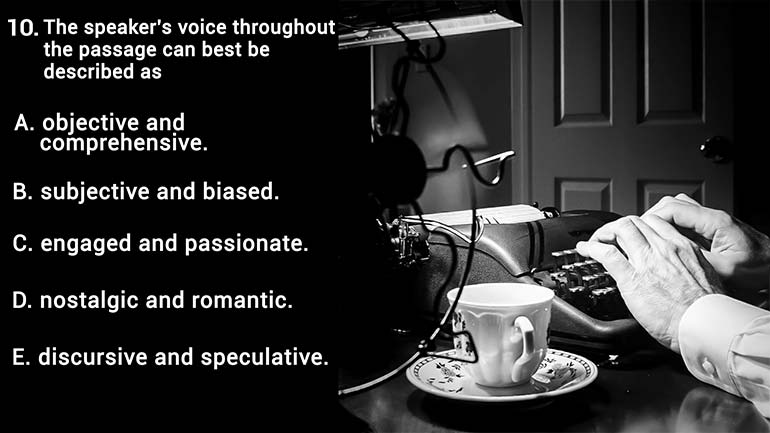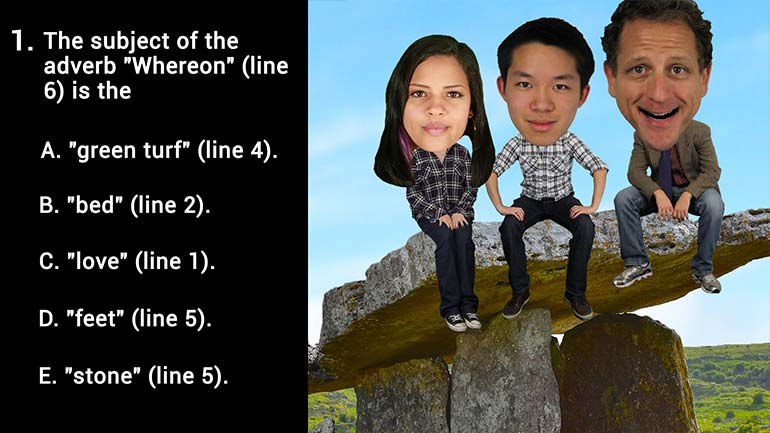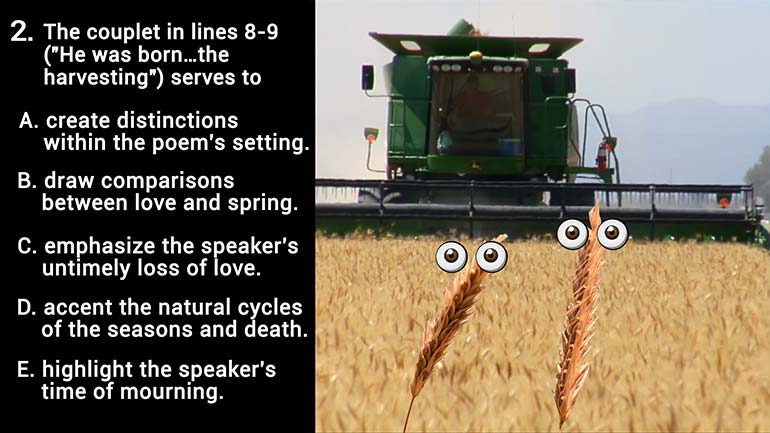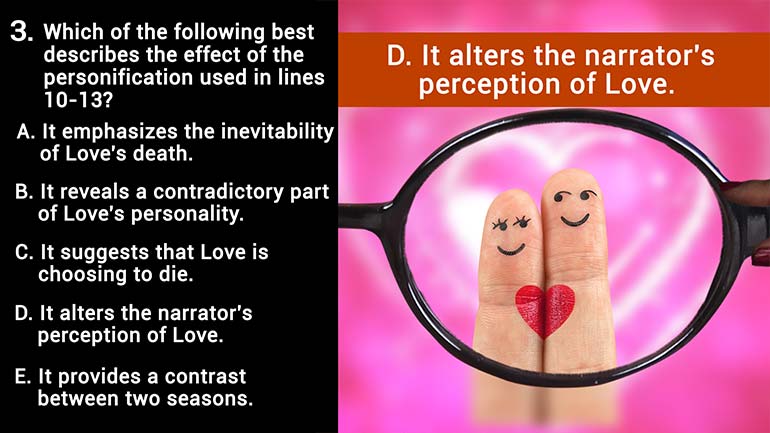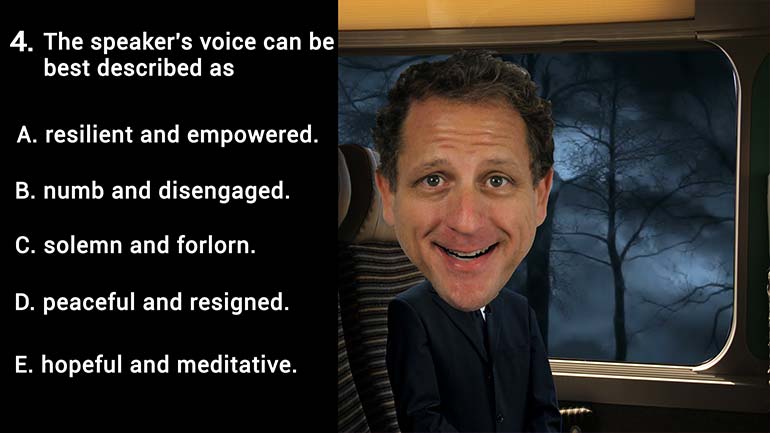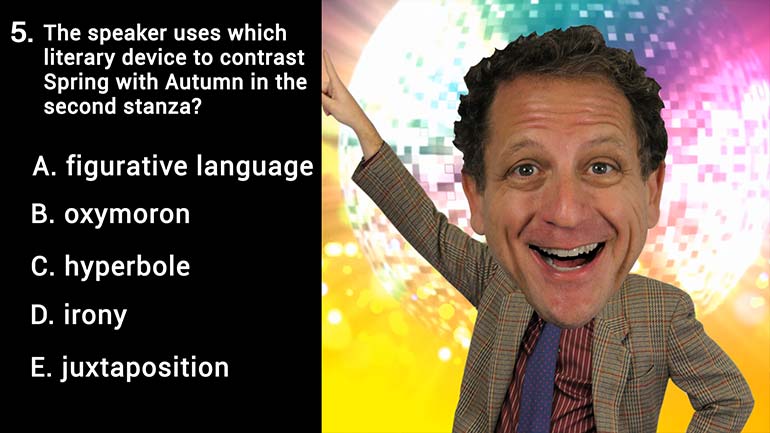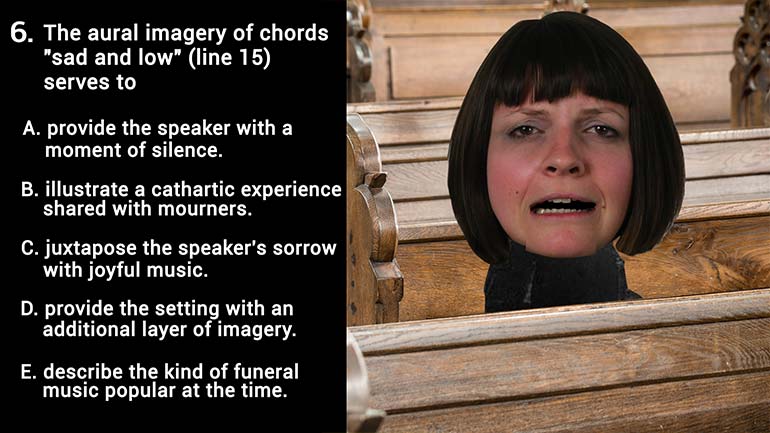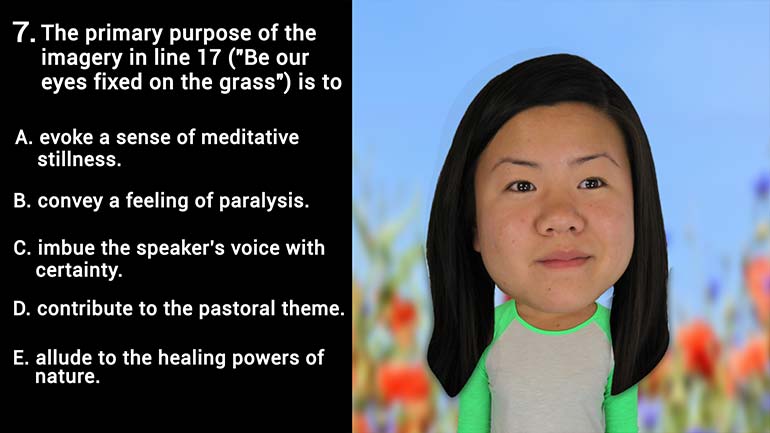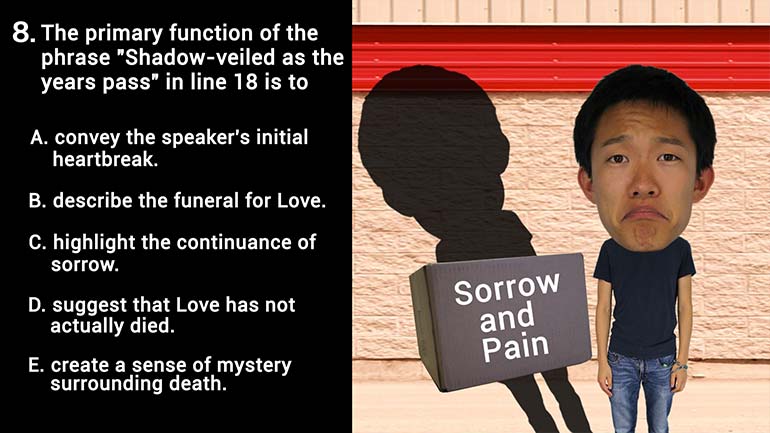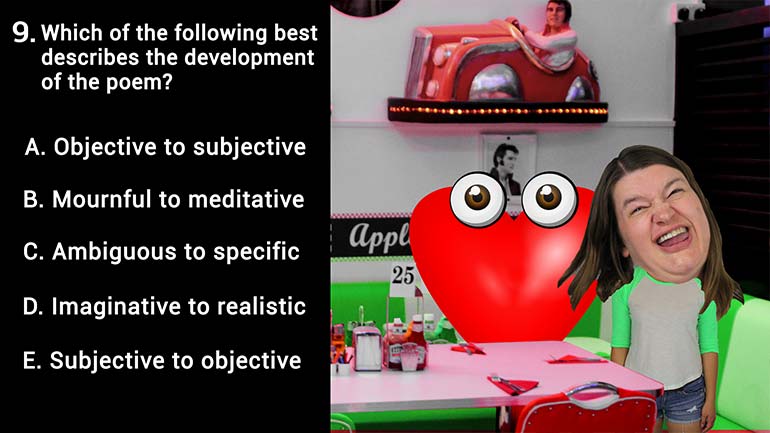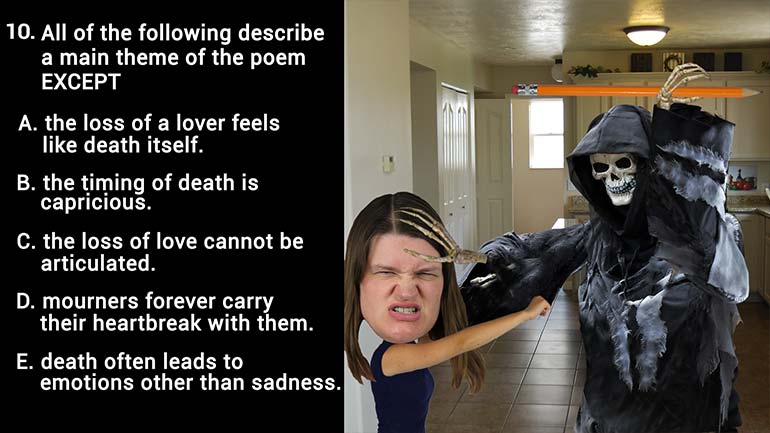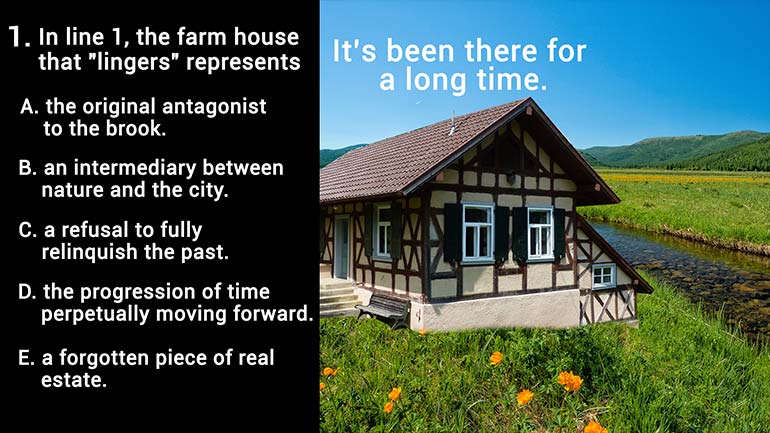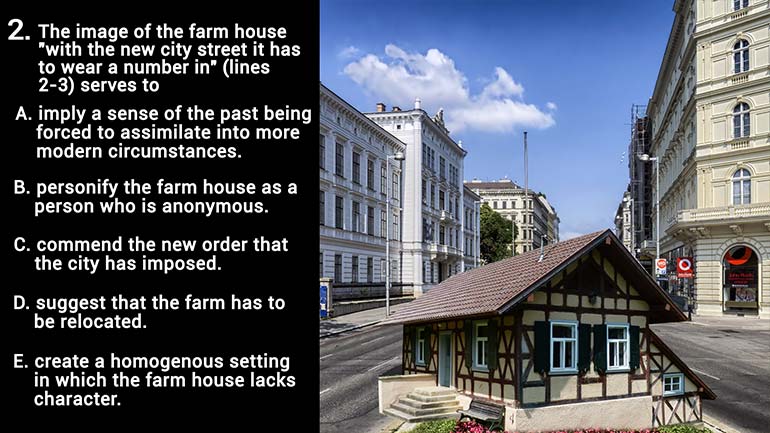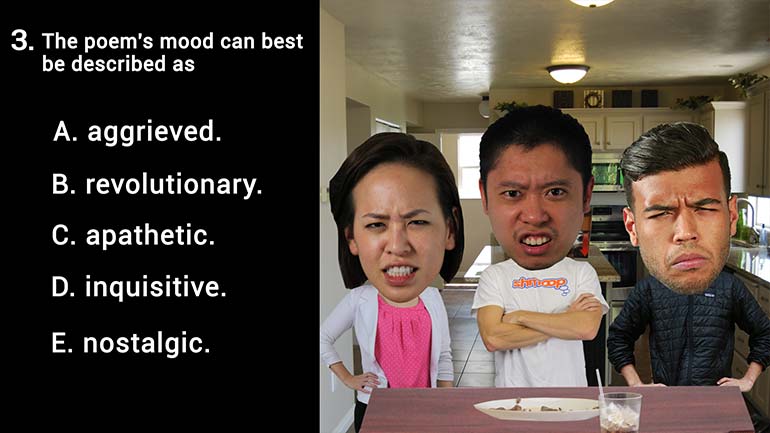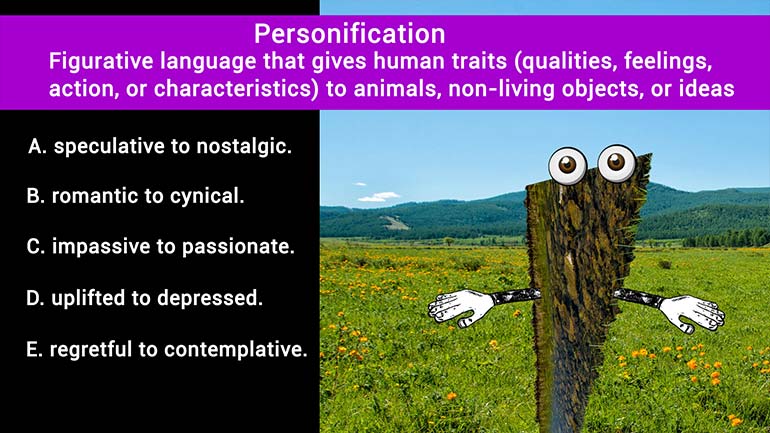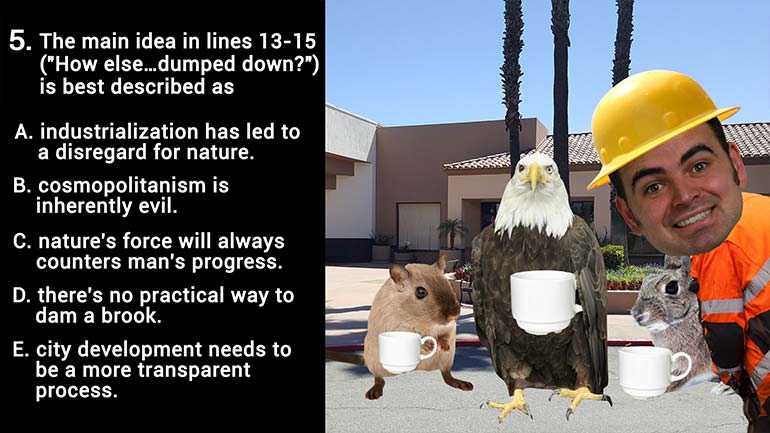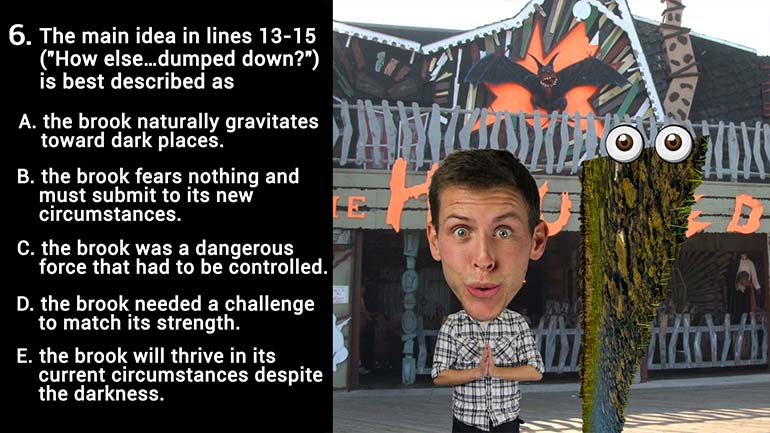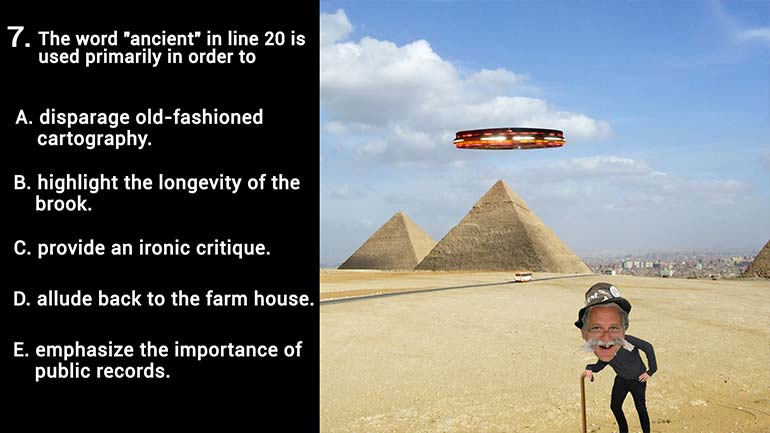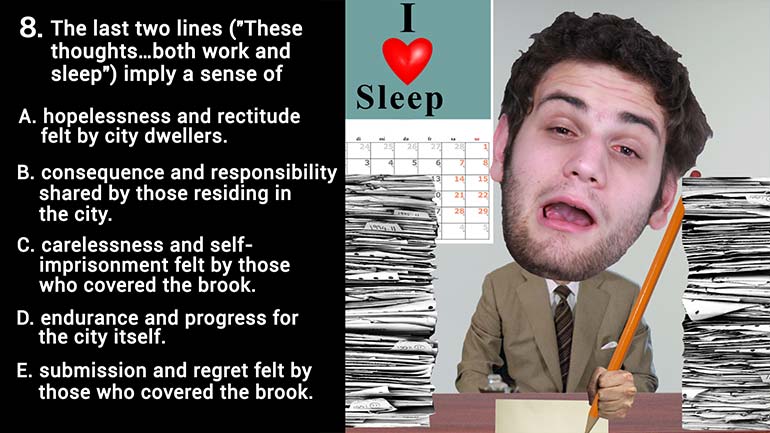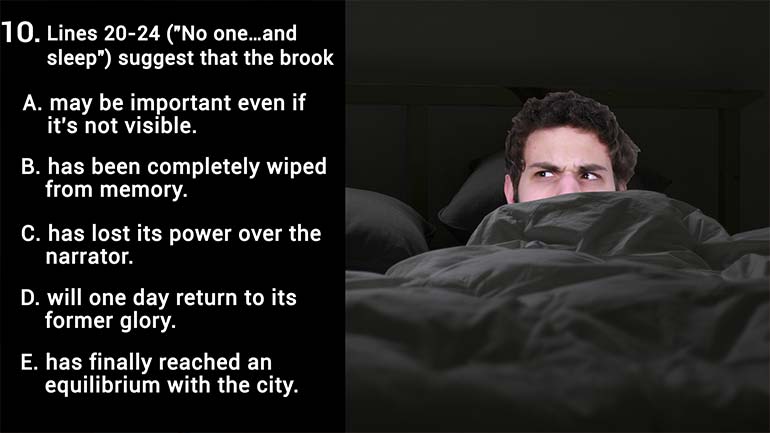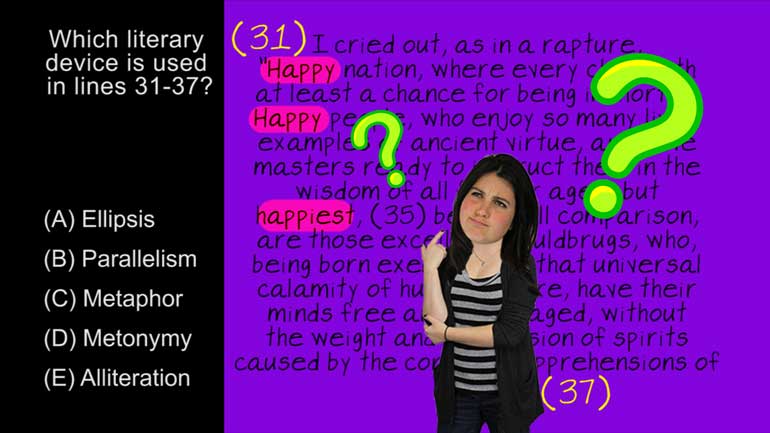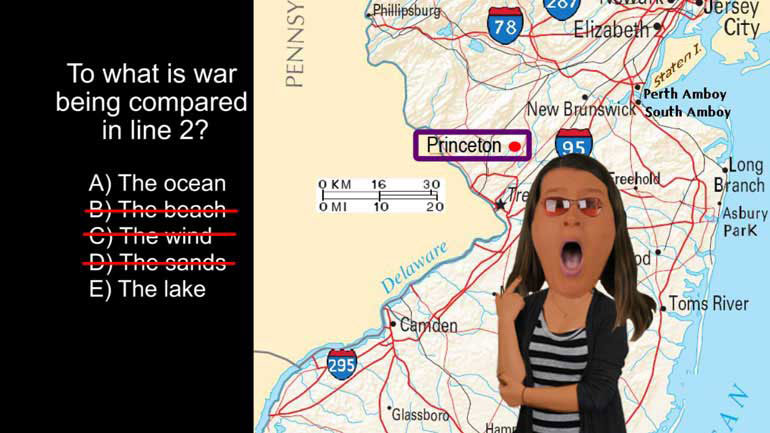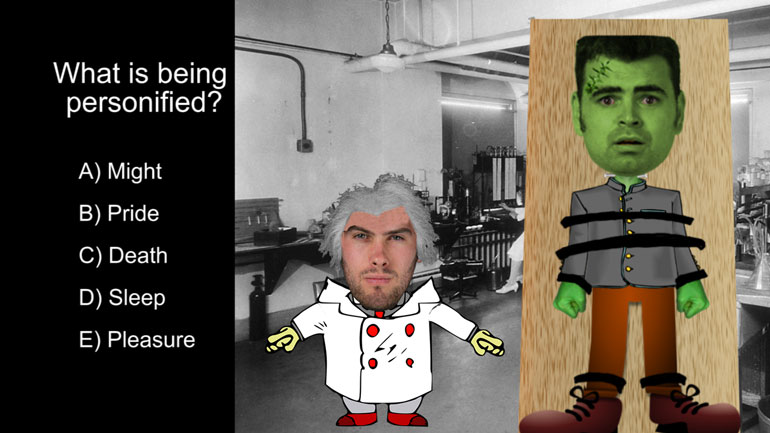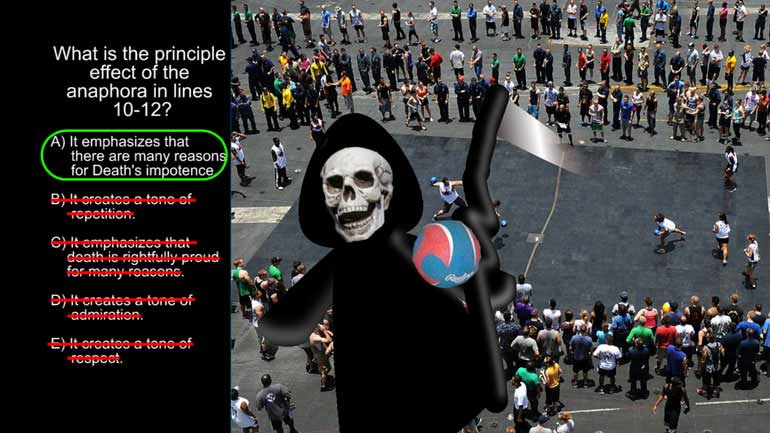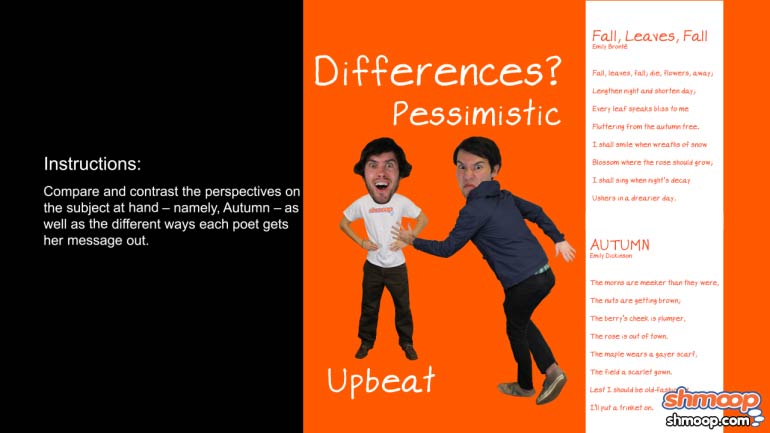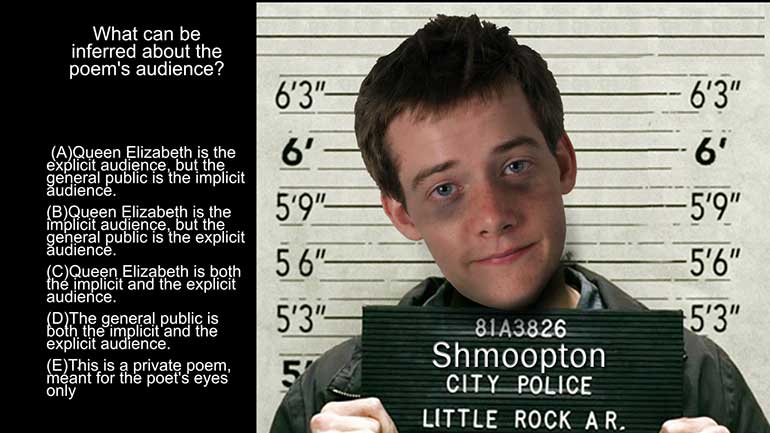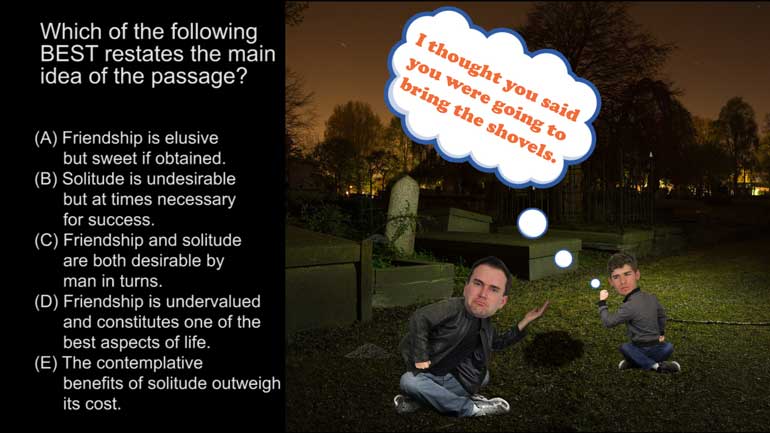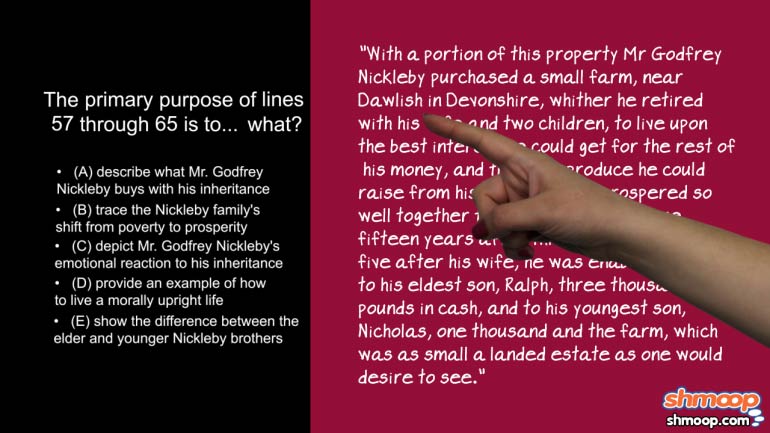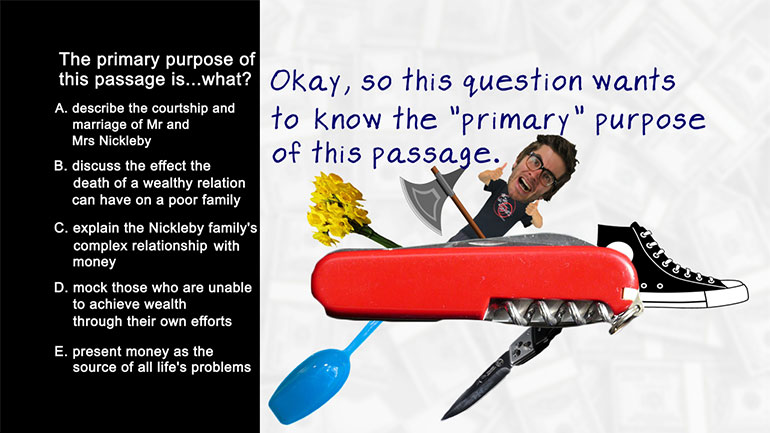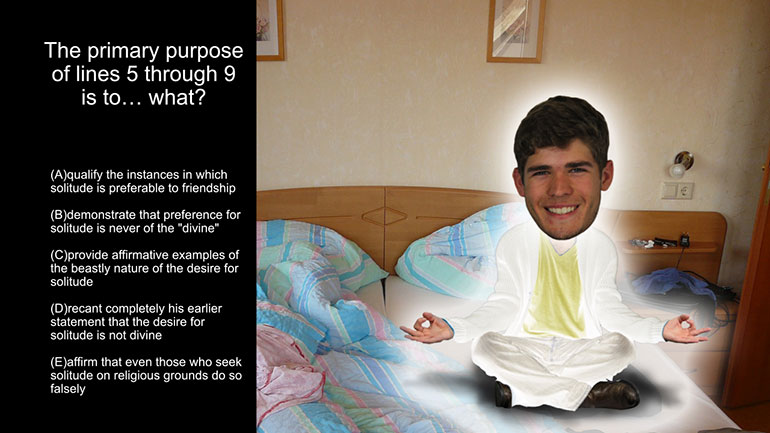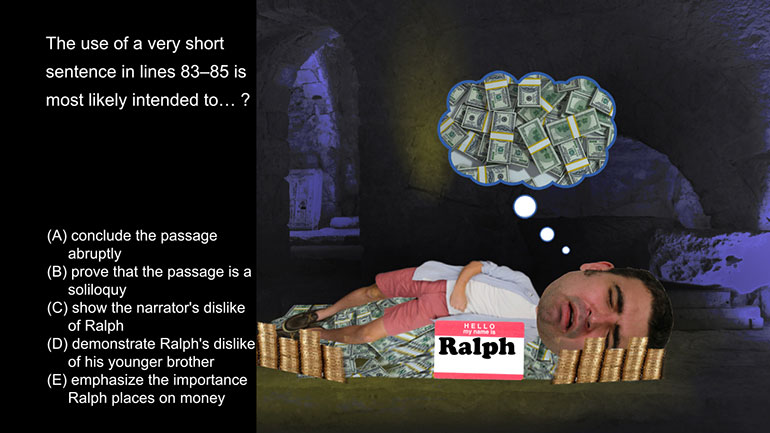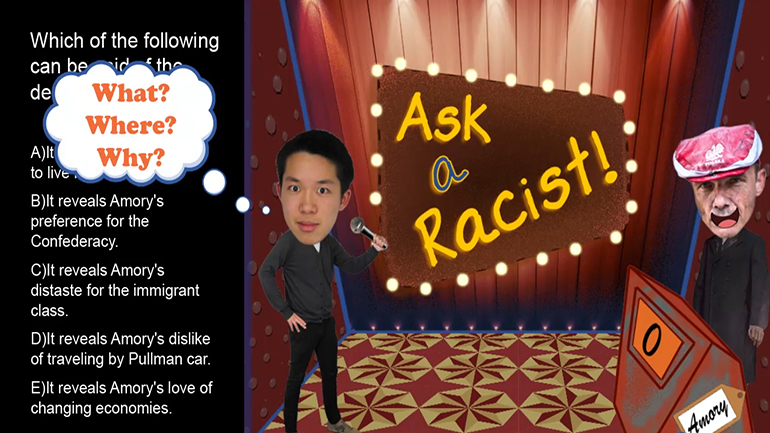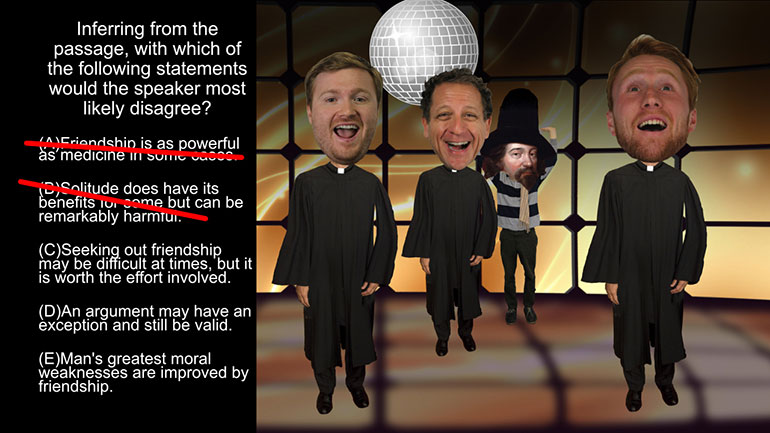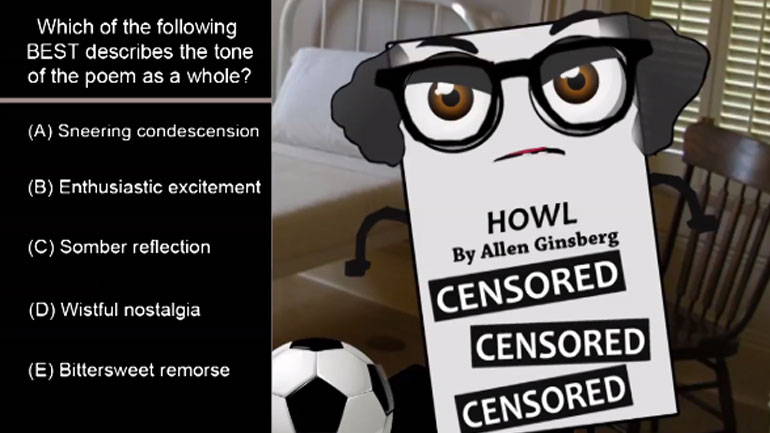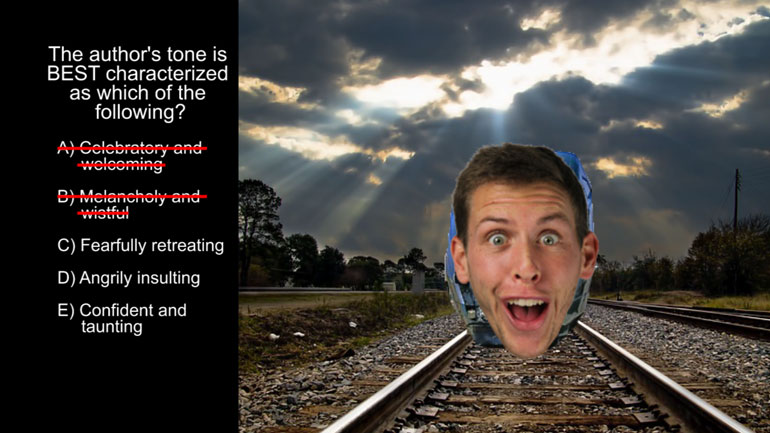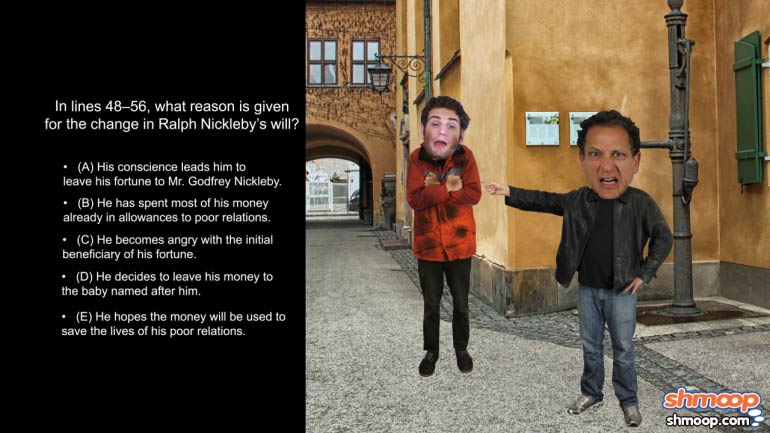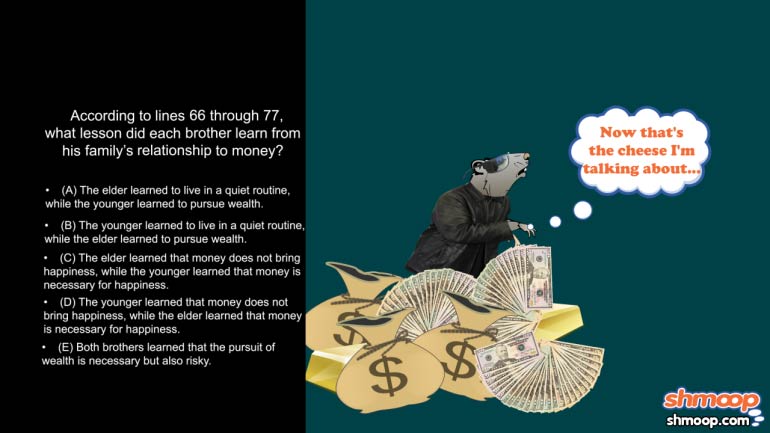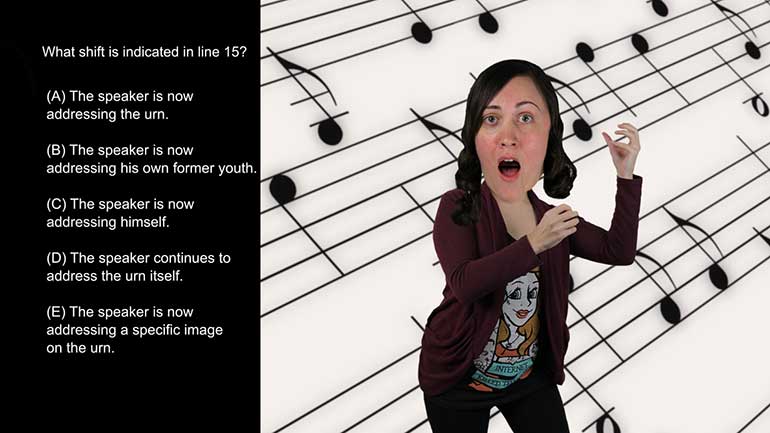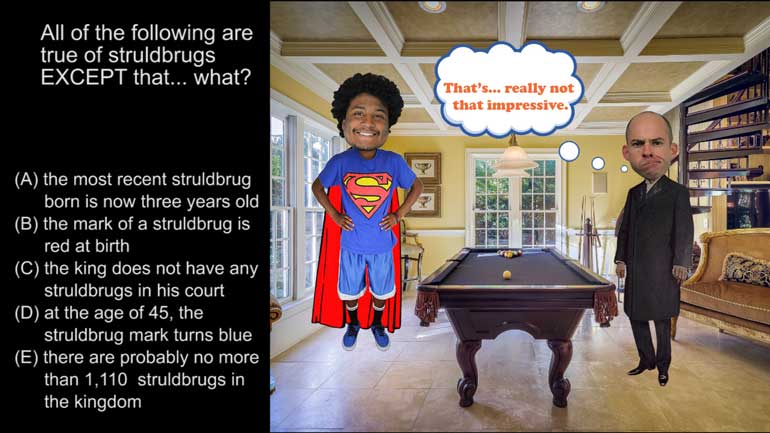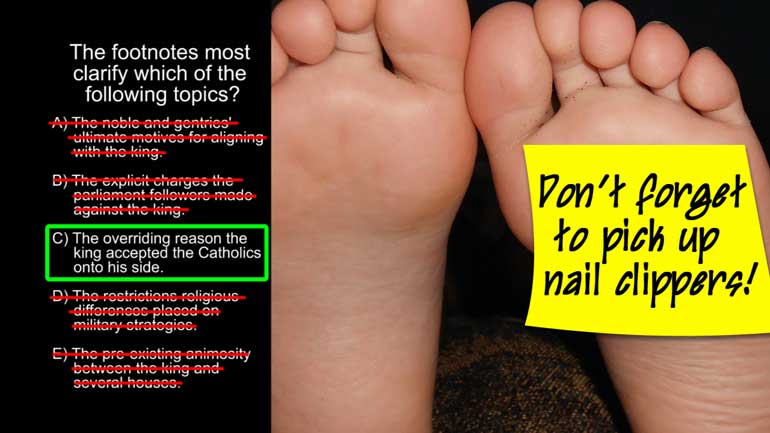ShmoopTube
Where Monty Python meets your 10th grade teacher.
Search Thousands of Shmoop Videos
AP English Literature Videos 112 videos
According to the information presented in the first and second paragraph (lines 1-26), it can be reasonably inferred that the kingdom of the Luggna...
In line 27, the adjective "inexpressible" is used
The main idea of the second paragraph (lines 24-33) can best be restated that
AP English Literature: Using Exaggeration 5 Views
Share It!
Description:
The word "ancient" in line 20 is used primarily in order to
The word "ancient" in line 20 is used primarily in order to
Transcript
- 00:00
Sorry Okay AP English people Just a few more and
- 00:05
then we're done Yeah Yeah I know You're so sad
- 00:08
about that Thank you Okay The word ancient in line
- 00:18
twenty right there is used primarily in order to do
- 00:21
what What Well to qualify as ancient thing needs to
Full Transcript
- 00:30
be pretty old you know like the Great Pyramids which
- 00:32
were built by aliens But that's a different story even
- 00:35
if this city is one hundred fifty years old While
- 00:37
the maps that came before then aren't really ancient which
- 00:41
implies a certain degree of uselessness here the speaker is
- 00:45
using irony to mock the developers You know who would
- 00:49
probably say that anything there before the city was pointless
- 00:53
So the interest see here provide an ironic critique like
- 00:56
they're giving attitude loser ball Well because the ancient maps
- 01:00
showed the brook which the speaker loves This adjective isn't
- 01:04
being used to make fun of old fashioned map making
- 01:07
So get rid of a An ancient is modifying the
- 01:10
maps here not the brook So get rid of B
- 01:12
and the farmhouse isn't old enough to be considered ancient
- 01:15
so get rid of D Though the speaker would probably
- 01:18
agree that it's important to remember the past The word
- 01:20
ancient here doesn't specifically endorsed the idea of public records
- 01:24
like Where does that come from We'll get rid of
- 01:26
it So the answer here is C as in critique
Related Videos
In lines 7-10 ("His helmet now...his alms"), the narrator draws attention to
The entire poem is framed in which of the following tenses?
The meaning of the word "wonderful" as it is used in line 51 most closely resembles
In line 69, "confirmation" functions as which of the following?
